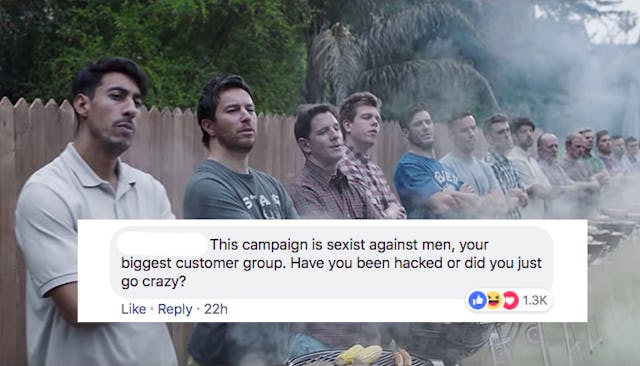Men Are Pissed About That Amazing Gillette Ad, Because Of Course

The comments about that amazing Gillette ad prove what it’s trying to say about toxic masculinity
Ah, irony. Gillette released an amazing new ad/short film this week about toxic masculinity, encouraging men to learn about their problematic behaviors and hold themselves and other men accountable. Reasonable stuff, right?
Well, no, not according to the very men who should be shutting up and paying attention to that ad. They’re all over the internet whining about it, because of course they are.
For a refresher, here’s the chill-inducing ad.
And here are some of the things offended men are saying about it.
Of course, there were also women who took issue with the ad’s message. And grossly misinterpreted it.
There’s also, naturally, the guy who has to bring up false rape accusations, which statistics show basically don’t happen.
And the people who clearly didn’t even watch the ad, and who apparently think “toxic masculinity” is standing up for others and being a good father, which, spoiler alert, is the opposite of true.
Basically, this comments section is a whole, long string of men who are so close to getting it, yet don’t get it. Toxic masculinity is not the same as masculinity. Masculinity becomes toxic when it’s expressed through violence and suppression of natural emotions. Men can be as masculine as they want to be. But they should also be able to cry and solve problems without throwing punches, even though society tells them otherwise. That’s what Gillette is actually saying with this ad. These commenters are just proving that there’s a desperate need for this conversation.
Good on Gillette for trying to start the conversation. It’s too so many bad men can’t look themselves in the eye and see that they truly are the problem. But conversations like this are the only way more men will take those hard looks at themselves and their behavior, and that is important on its own.
This article was originally published on